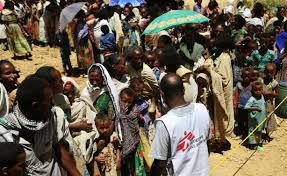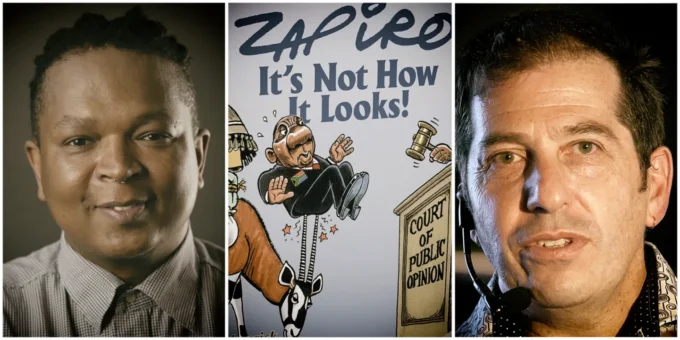Médecins Sans Frontières (MSF), also known as Doctors Without Borders, has officially concluded that the June 2021 killing of three of its staff members in Ethiopia’s Tigray region was a “deliberate and targeted” act, not the result of crossfire or operational misidentification. The findings come after an exhaustive internal investigation, which MSF says sheds light on the increasingly perilous conditions humanitarian workers face in conflict zones across Ethiopia.
The three victims 35-year-old Spaniard María Hernández Matas, 32-year-old Ethiopian health worker Yohannes Halefom Reda, and 31-year-old Ethiopian driver Tedros Gebremariam, were on a medical assessment mission when they were brutally killed on 24 June 2021. Their MSF-marked vehicle, clearly identified with the organization’s emblem, was discovered burned along the main road between Abi Adi and Yech’illa, with the bodies of Matas and Reda found several hundred meters away, and Tedros’s body near the wreckage. All three were wearing clearly marked MSF vests and had coordinated their movements in advance, as is customary in high-risk zones.
“Our colleagues were killed in what can only be described as a deliberate attack,” said Paula Gil, President of MSF Spain. “This was not a tragic accident. It was a violation of humanitarian law and a direct attack on people working to save lives.” The organization’s report further details that Ethiopian military forces were present in the area at the time of the incident, and satellite imagery, witness testimony, and other sources corroborate that no armed engagement or crossfire was taking place nearby when the killings occurred.
The internal review is part of MSF’s broader effort to uncover the truth behind the incident, especially after years of inadequate engagement and lack of transparency from the Ethiopian government. Despite more than 20 face-to-face meetings with government officials since 2021, MSF says authorities have failed to provide a credible or consistent account of the events. In mid-2022, Ethiopia’s justice ministry verbally informed MSF that their preliminary findings indicated that no government troops were involved, but they refused to provide written confirmation or allow independent verification.
The case has since become symbolic of the growing dangers facing humanitarian workers in Ethiopia, especially amid the brutal conflicts that have ravaged the Tigray, Amhara, and Oromia regions. A February 2024 report from the United Nations revealed that 46 aid workers have been killed in Ethiopia since 2019, 36 of whom died in connection with the northern conflict, making it one of the deadliest countries in the world for humanitarian personnel.
The killing of the MSF staff occurred during a particularly violent phase of the Tigray conflict, which began in late 2020 when tensions between the federal government and the Tigray People’s Liberation Front (TPLF) erupted into full-scale war. The conflict quickly escalated, drawing in forces from neighboring Eritrea, and resulted in the deaths of hundreds of thousands of civilians from violence, hunger, and lack of access to healthcare. Aid agencies working in the region have consistently reported harassment, obstruction, and targeted violence.
MSF had previously suspended some of its operations in Tigray and Amhara due to the deteriorating security situation and repeated violations against its staff and convoys. The organization has repeatedly called for better protection of humanitarian corridors, unimpeded access to affected communities, and an end to the culture of impunity that surrounds attacks on aid workers.
In the case of María Hernández Matas, the pain is particularly acute. The experienced emergency coordinator was known and loved across Tigray for her dedication, and her death devastated not only her family but also the communities she served. Yohannes and Tedros were equally committed to their mission, with Tedros being a new father at the time of his death. His widow later named their baby daughter Maria, in honor of her father’s Spanish colleague.
The broader humanitarian community has rallied behind MSF’s call for justice, warning that failure to hold perpetrators accountable not only undermines international humanitarian law but also puts future operations at greater risk. The International Committee of the Red Cross, UN OCHA, and other NGOs continue to urge Ethiopia and the African Union to establish independent mechanisms to investigate and prosecute attacks on aid workers.
As Ethiopia attempts to rebuild and navigate post-conflict recovery, incidents like this highlight the urgent need for transparency, justice, and better protection of humanitarian actors. MSF’s report serves as a grim reminder that even those who dedicate their lives to saving others are not spared in times of war and that the world’s silence and inaction can only embolden those who treat humanitarian laws as optional.
The international community, particularly donor nations and multilateral bodies, must now apply pressure to ensure accountability, strengthen protection mechanisms, and reaffirm the sanctity of humanitarian space in Ethiopia and beyond.














Leave a comment